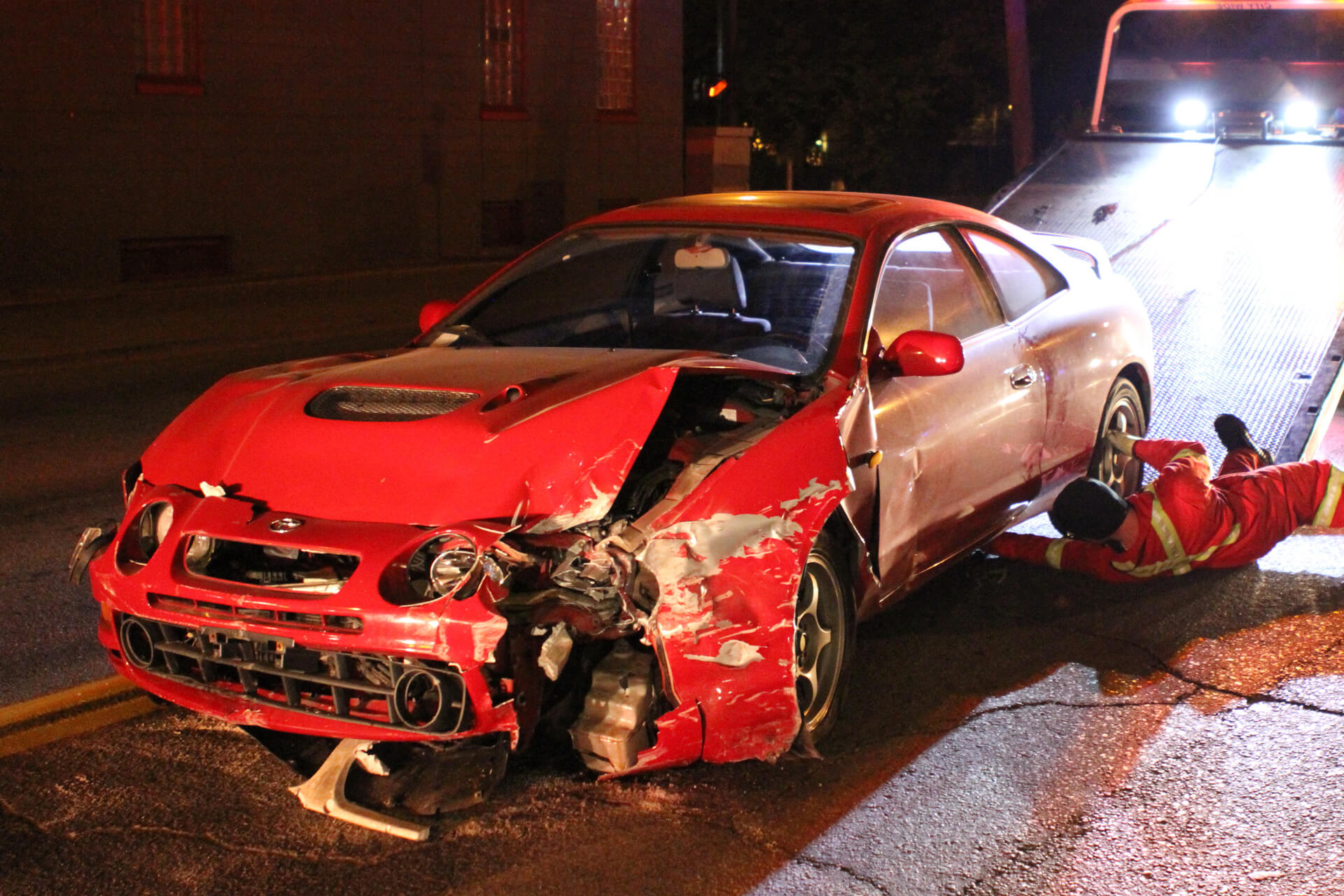Vehicle Depollution Manchester
Professional Vehicle Depollution Services from Manchester's Trusted Authorised Treatment Facility
Have an end-of-life vehicle that needs recycling?
We collect vehicles across Manchester and surrounding areas, handle all of the paperwork, and provide you with an official Certificate of Destruction for DVLA notification.
What is vehicle depollution?
Vehicle depollution is the legally required process of safely removing and disposing of all hazardous materials from end-of-life vehicles (ELVs) and MOT failures before they can be recycled or scrapped. Following the European Union Vehicle Depollution directive introduced on 16th July 2004, all cars offered for destruction must be depolluted in an environmentally responsible way to protect our ecosystem and comply with UK environmental legislation.
Barlow Street Breakers is a fully licensed Authorised Treatment Facility (ATF) in Manchester, certified by the Environment Agency to carry out professional car dismantling services in Manchester. We’ve developed step-by-step depollution procedures that ensure the safe disposal of your end-of-life vehicle while helping you comply with your legal responsibilities under environmental and vehicle legislation.

Our Vehicle Depollution Process
At Barlow Street Breakers, we follow strict environmental protocols to ensure every vehicle is depolluted safely and legally. Here’s a guide to our depollution process:
STEP 1: Hazardous Waste & Fluid Removal
All liquids that pose environmental hazards are carefully drained from your end-of-life vehicle using specialist equipment. This includes engine oil, transmission fluid, hydraulic oils, brake fluid, power steering fluid, engine coolant, air conditioning refrigerants, and even antifreeze and windscreen washer solution.
All fluids are collected separately, disposed of or recycled according to environmental regulations, preventing soil and water contamination.
STEP 2: Battery Removal and Assessment
Car batteries contain toxic materials, including sulphuric acid and lead, that can cause serious environmental damage if handled incorrectly. Our technicians safely remove each battery for assessment.
Car batteries in good working condition are professionally cleaned, recharged, and made available for resale, extending their useful life. Batteries that have reached the end of their service life are sent to specialist recycling facilities where the lead, plastic casing, and acid are separated and recycled, preventing these materials from ending up in landfill.
STEP 3: Tyre and Wheel Inspection
Tyres are carefully removed from the wheels and assessed for reuse. Only premium quality tyres in excellent condition with sufficient tread depth are up for resale, helping motorists access affordable replacements.
Tyres that don’t meet our strict quality standards are sent to licensed tyre recycling facilities. The steel or alloy wheel rims undergo inspection, with our technicians checking for structural integrity and any major damage or hairline fractures that could compromise driver safety.
STEP 4: Component Removal and Part Recovery
Our skilled dismantlers remove high-demand vehicle components and spare parts from your vehicle. Each used car part is thoroughly inspected, cleaned, and tested where applicable before being catalogued for resale. This includes engines, gearboxes, body panels, lights, interior components, and much more.
Once depollution is complete, the vehicle shell is moved to our secure storage yard, where additional parts can be removed on request. This maximises vehicle recycling, reduces the amount of waste sent to landfill, and provides affordable parts to the motoring community.
STEP 5: Final Processing and Metal Recycling
When all viable spare parts have been recovered, the remaining vehicle shell is loaded into our industrial car baler and compressed into a compact rectangular bale. These metal bales are collected by authorised metal recyclers who extract the various metals – steel, aluminium, copper- for smelting and reuse in manufacturing new products.
This closes the recycling loop, with up to 95% of a vehicle’s materials being recovered and recycled.
Expert Car Recycling You Can Trust
Ready to scrap your car in an environmentally responsible way? Barlow Street Breakers offers competitive prices, free collection across Manchester, and full compliance with all environmental regulations.
Why do cars need to be depolluted?
Vehicle depollution is both a legal requirement and an environmental necessity. ELVs contain hazardous substances that pose serious risks if not handled correctly.
Environmental Protection
Vehicles contain approximately 5 to 10 litres of engine oil, plus additional litres of transmission fluid, brake fluid, and coolant. If these fluids leak into the ground, they contaminate soil and groundwater, harming wildlife and potentially affecting drinking water supplies. Without proper car depollution, these hazardous materials can harm the environment for decades.
Legal Compliance
Since 2007, it’s been illegal in the UK to scrap a vehicle without depollution by an Authorised Treatment Facility. Vehicle owners have a legal duty of care to dispose of their car properly. Failure to use an authorised facility can result in fines up to £5,000. Only ATFs like Barlow Street Breakers can issue the Certificate of Destruction needed to deregister your vehicle with the DVLA.
Resource Recovery
About 80% of a vehicle by weight can be recycled, like metals, plastics, glass, and rubber. Professional car depollution enables the recovery of valuable materials and allows quality components to be refurbished and resold, reducing manufacturing demand and providing affordable parts to Manchester motorists. It also reduces the amount of waste that goes to landfills.
Public Health
Improper vehicle disposal releases toxic substances, including heavy metals, carcinogens, and harmful gases. Professional depollution ensures these hazardous materials are handled and disposed of safely by trained professionals using appropriate equipment.
What do you remove during the depollution process?
Our depollution service safely removes all hazardous materials from your ELV:
Hazardous Fluids
Engine oil, transmission fluid, differential oil, hydraulic fluids, brake fluid, power steering fluid, engine coolant and antifreeze, windscreen washer fluid, fuel (petrol or diesel), and air conditioning refrigerant gases. All fluids are separated and recycled or disposed of safely.
Reusable Components
Engines, gearboxes, body panels, lights, interior trim, glass, electronics, and mechanical components are systematically removed for resale when in good condition, maximising resource recovery.
Components Containing Hazardous Substances
Airbags and seatbelt pretensioners, catalytic converters (containing precious metals), mercury switches and sensors, and LPG tanks (emptied and degassed by qualified technicians).
Batteries and Electrical Components
Lead-acid batteries, hybrid and electric vehicle high-voltage batteries (handled by specialist technicians), and capacitors containing hazardous materials.
Tyres and Wheels
All tyres, regardless of condition, are removed and assessed for reuse or recycling. Steel and alloy wheels are inspected for structural integrity.
Filters and Absorbent Materials
Oil filters, fuel filters, air filters, cabin filters, and any materials contaminated with oils or fluids.
Where to Find Our Scrap Yard in Manchester
Barlow Street Auto Salvage
Barlow Street
Walkden, Manchester
Greater Manchester
M28 3BQ

